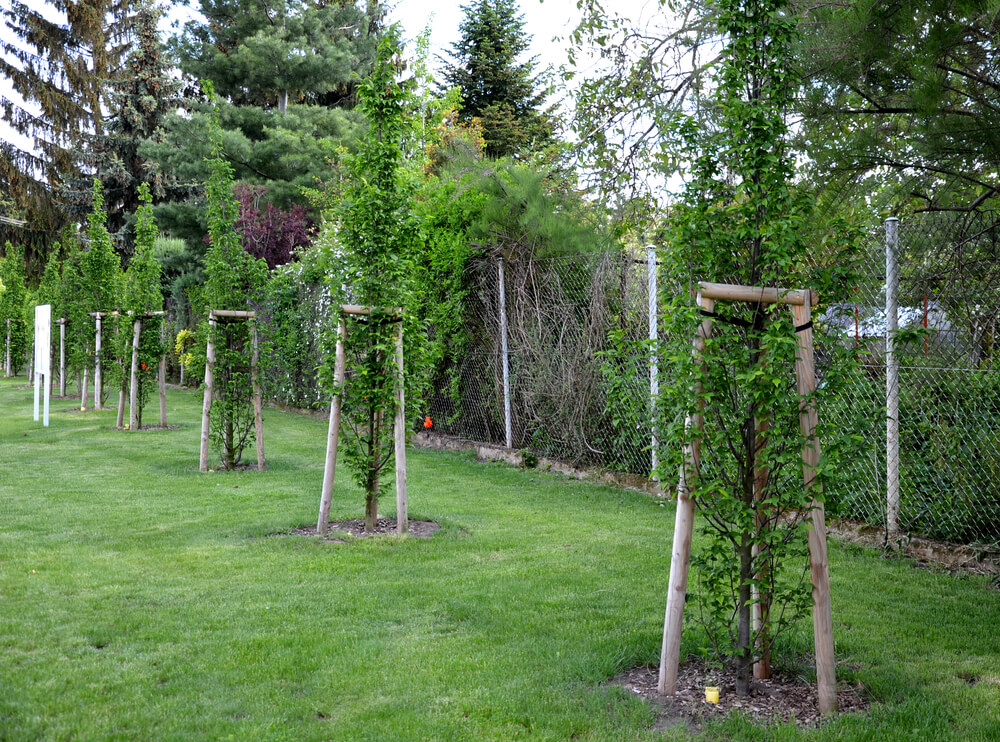Carpinus betulus fastigiata 330mm pot size TREE DECIDUOUS
$88.00
Carpinus is a genus of deciduous trees and shrubs in the family Betulaceae, commonly known as hornbeams. Here are some horticultural notes on the genus Carpinus:
Growing conditions: Carpinus species prefer full sun to partial shade and well-drained soil. They are adapted to temperate climates and can tolerate periodic periods of drought.
Propagation: Carpinus can be propagated from seed or by cuttings. Seeds should be sown in the fall or stratified before sowing in the spring. Cuttings can be taken in the summer and rooted in a well-draining soil mix.
Watering: Carpinus should be watered deeply and infrequently. They are adapted to moist conditions but can tolerate periodic periods of drought.
Fertilizer: Carpinus trees benefit from regular fertilization with a balanced fertilizer. Fertilizer should be applied in the spring and fall.
Pruning: Prune Carpinus trees in the late winter or early spring, before new growth begins. Remove any dead or crossing branches. Thin out the center of the tree to promote air circulation.
Pests and diseases: Carpinus trees are relatively disease-free. However, they may be susceptible to scale insects and mealybugs. Regular monitoring and treatment with insecticides or horticultural oils may be necessary.
Uses: Carpinus species are often used for ornamental purposes, such as in landscaping or as specimen trees. They produce showy flowers in the spring, followed by ornamental fruit. Carpinus trees are also often used for hedging and screening. The wood of some species is used for construction, furniture, and other woodworking purposes. The leaves of some species are used in traditional medicine to treat various ailments, including diarrhea and fever.
Mature Height: 10-25m
Mature Width: 4-10m
Position: Full Sun
Soil Type: Any, Well Drained
11 in stock
Description
- Family Name:Betulaceae
- Origin:Asia
- Characteristics:
- Foliage Colours:Green, Yellow
- Flower Colours:Green
- Flower Fragrant:No
- Flowering Season:Autumn, Summer
- Fruit:Yes
- Landscape Use(s):
Container / Pot, Courtyard, Feature, Formal Garden, Hedging / Screening, Shade Tree
- Pest & Diseases:
Generally Trouble Free
- Plant Care:
Annual Slow Release Fertiliser, Keep Moist During Dry Periods, Mulch Well
- Requirements:
- Growth Rate: Slow, Moderate
- Maintenance Level: Low
- Water Usage: Medium
- Tolerances:
- Drought: Moderate
- Frost: High
- Wind: High
- Cultural Notes:
NOTE: Water deeply for the first year. Water 1-2 times per week during dry periods. Feed with a suitable fertiliser in autumn and spring. Mulch annually to conserve water and assist with weed suppression. Healthy plants should have no pest and disease issues.


